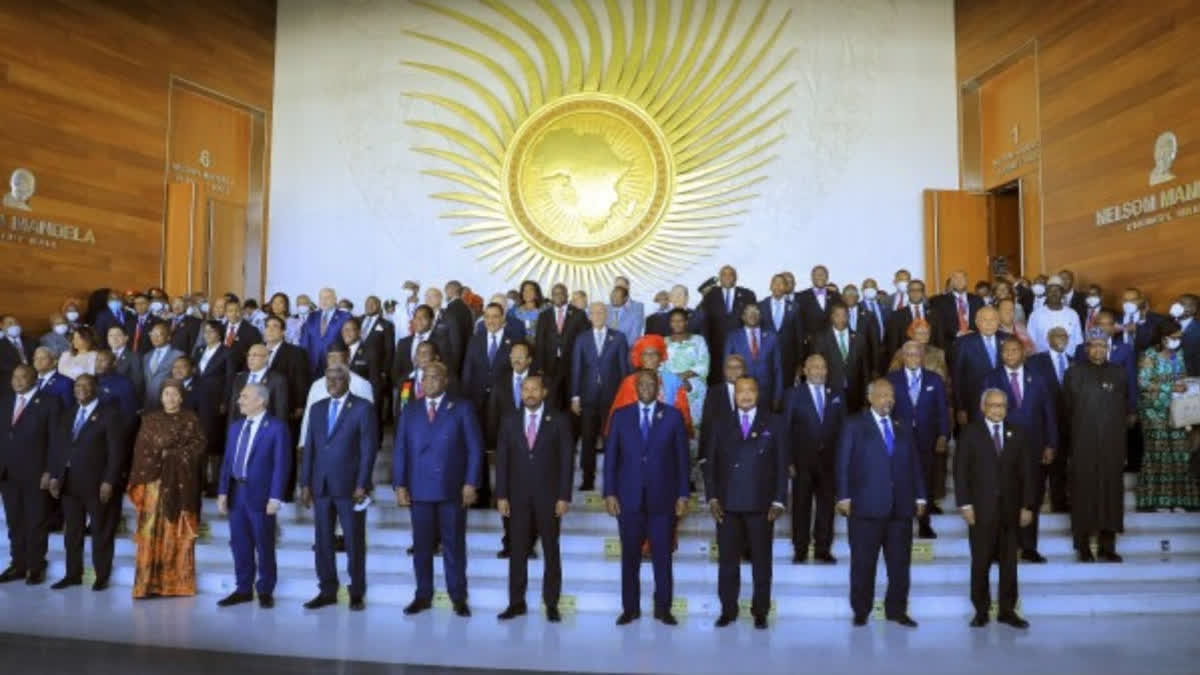New Delhi: Following the inclusion of the African Union (AU) as a permanent member during the G20 Summit here this month, South Africa’s High Commissioner to India Joel Sibusiso Ndebele has said that the countries of Africa appreciated India’s people-centric approach during its presidency of the intergovernmental forum.
“We thank India for adopting a people-centric approach in the G20,” Ndebele said while speaking at a panel discussion on ‘India’s G20 Presidency Rules-based Global Order and the Road Ahead’ organised by the Centre for Global India Insights think tank and India Writes Network.
Also read: Explainer: What G20 membership means for African Union's 1 billion people
“Before Delhi, Africa’s only role has been ‘call upon, call upon, call upon’,” he said while referring to the AU’s numerous requests in the past to be taken on board the G20. “This has now ended.”
Right from the very beginning, India had said that its G20 presidency would be a voice for the Global South. At India’s initiative, the 55-nation AU was made a part of the G20 during the intergovernmental forum’s annual summit in New Delhi on September 9-10. During India’s G20 Presidency this year, Prime Minister Narendra Modi had emphasised on integrating the priorities of the African nations, who form the majority of the Global South, in the Group’s agenda. The G20 comprises 19 countries and the European Union.
Ndebele said that this year saw the highest number of participants in a G20 summit from Africa, a continent with a population of 1.3 billion and a combined GDP of $3 trillion.
“The Delhi Summit took place in the backdrop of increased polarisation in the world, including the war in Ukraine, increased poverty and the COVID-19 pandemic,” the South African High Commissioner said. “But the Summit was able to ensure that the war in Ukraine did not derail India’s focus.”
He said that with just seven years to go for meeting the UN’s Sustainable Development Goals (SDGs), the focus should now be on financial inclusion, women’s empowerment, fighting climate change and listening to the voice of the Global South.
“Accelerating the SDGs now is very important,” Ndebele said. “Climate change is an existential threat, particularly for small island nations.” He said that countries of the Global South, particularly those of Africa, appreciated the G20 leaders for invigorating multilateralism and reforms in international financial institutions.
“Reforming of global financial institutes cannot be deferred,” the South African High Commissioner said. “The Global South and Africa will no longer be bystanders but will sit on the G20 table. The AU will continue to play its role in global growth.”
Ndebele said that the year 2023 will be remembered for two reasons – BRICS adding six countries and G20 taking in AU. During the BRICS (Brazil, Russia, India, China, South Africa) Summit held in Johannesburg last month six new countries were added to the bloc of five of the largest economies – Argentina, Egypt, Ethiopia, Iran, Saudi Arabia and the United Arab Emirates (UAE).
Speaking on the occasion, Mohan Kumar, former Indian Ambassador to France and Bahrain, said that the G20 Summit in New Delhi saw India’s transition from being a “rules-taker” to a “rules-shaper”
“Normally, we accepted rules,” he said. Reiterating India’s position that the Russia-Ukraine conflict cannot be solved through war but only diplomatically, Kumar said: “The Global South is fed up of this war. These countries are facing shortages of food, fuel and fertilisers for no fault of theirs.”
With the AU now being included in the G20, Srikanth Kondapalli, Dean of the School of International Studies in Jawaharlal Nehru University and a renowned expert on China, drew the attention of the participants in the discussion to how Beijing is investing heavily in Africa and putting countries there in debt trap.
“China is the largest trading partner for the Global South,” Kondapalli said. “Twenty-three (of the 55) African countries are in debt. And much of it is to China.” He drew a comparison between the investments made by China in Africa and those by the Paris Club, a group of major creditor countries whose role is to find coordinated and sustainable solutions to the payment difficulties experienced by debtor countries. “The Paris Club donors have invested $67 billion in Africa, whereas China has invested $157 billion,” Kondapalli said.



